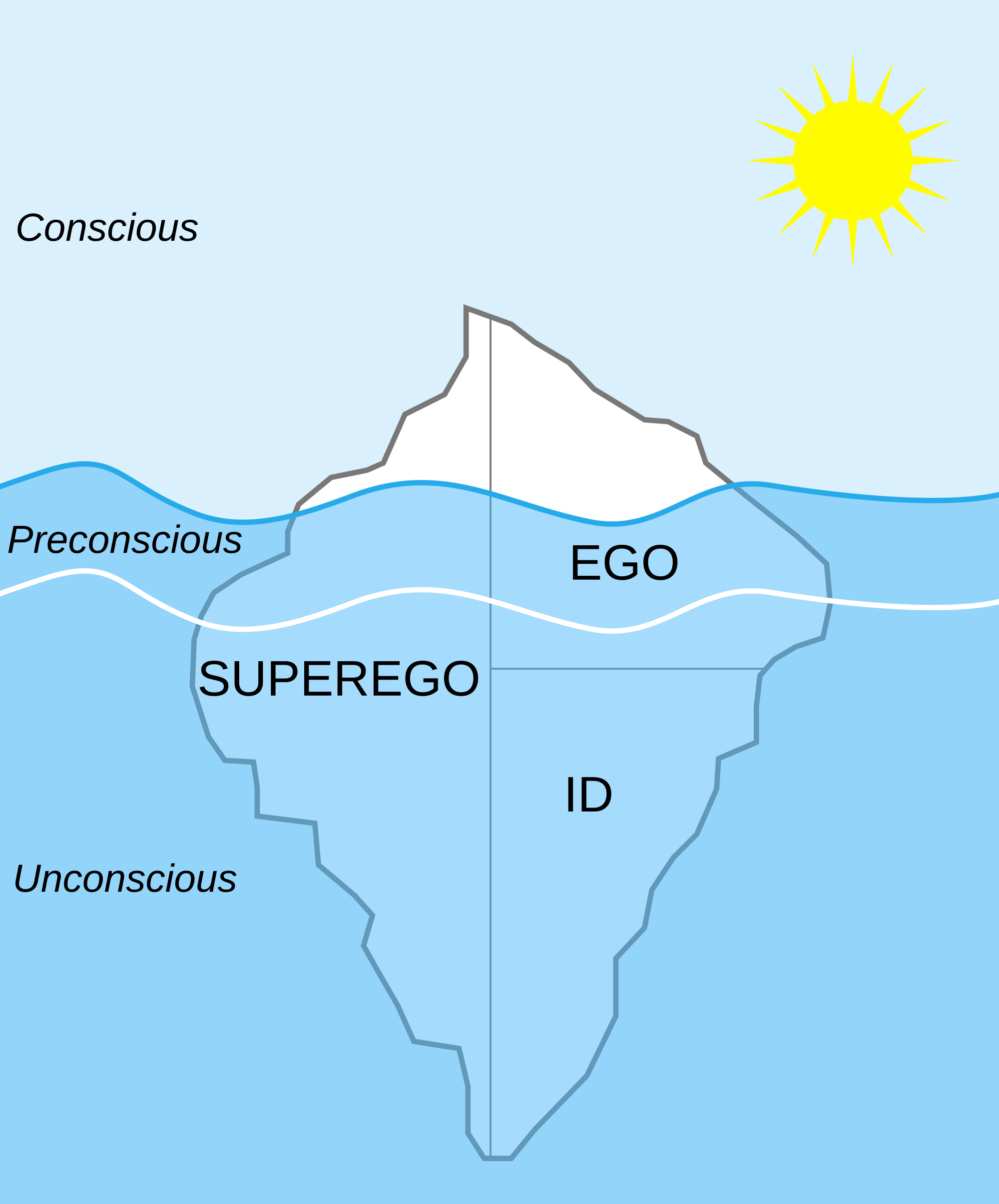Talk to anyone on Psychology, and a name that invariably pops up is Freud. It's like everyone knows Freud, maybe will even quote Freud, talk about what Freud says.
I did some recent listening and reading on Freud again, so here's like a first level snapshot
His biggest contribution is the idea of the unconscious mind, and his famous theory on personality, the psychoanalytical theory that is built on it. The theory is based on how it is the unconscious mind that drives most of human behavior, and any resolution of conflict can be understood through accessing the unconscious mind.

The iceberg metaphor is used to explain his basic concepts of the unconscious mind.
Freud proposed that our personalities are made up of three conflicting entities.
1. The Id - which is made up if an instinct based energy, the libido, which is largely made up of sexual energy. He also spoke of the death instinct, and said that efforts to suppress this instinct led to conflict.
The Id is largely a pleasure principle. If it feels good, do it...if it doesn't, stay away.
2. The Superego - which operates on a moral principle. It is created through childhood based on instructions from parents and society.....it contains all the rules, the dos and dont's of our lives.
The superego has guilt as its weapon against the pleasures of the Id.
Obviously, the Id and the Superego have major conflicts, because many of the ways the Id wants to behave are against the rules of the Superego.
3. Acting as a mediator between the Id and the Superego is the Ego.
The ego operates on a reality principle. The role of the ego is to act as the referee between the Id and the Superego, giving each enough control to allow the game of life to be played.
As the ego develops strength, it begins to carry around a self-concept that can be used as a standard, so that each conflict between the Id and Superego does not have to be individually mediated.
There's a simple experiment which enables us to understand how much happens at the unconscious level. If we picked a person, anyone that had an influence or issue with, and spoke for twenty minutes (even to yourself, but aloud).......you'd be amazed at how much more would be said than you'd readily admit.....focused speaking brakes through the filters, and feelings start to flow. Its apparently a very powerful technique and is today used in a lot of other talking therapies and not just psychoanalysis.
Apparently the ego controls ones thinking so much that repression is part of it's duty. And it's when you let go, talk, even just to yourself, that the censoring mechanism will crack and a lot of what's within will flow through.
According to Freud there are no mistakes or accidents, which is why even a 'slip if tongue' in many contexts is referred to as the 'Freudian Slip'.
An Interesting Snippet: Apparently Woody Allen has been in psychoanalysis all through his grown years as he is keenly interested in understanding the human psyche and behavior, and a lot of his movie themes are thoughts thrown up during his psychoanalysis sessions.
No comments:
Post a Comment